Weiter ging es Richtung Murgab. Dort gefiel es uns überhaupt nicht, die Menschen waren unfreundlich und nur mit Glück haben wir die letzten Dieselreserven der „Stadt“ in unser Auto füllen können. So entschieden wir uns weiter zum Karakulsee zu fahren.
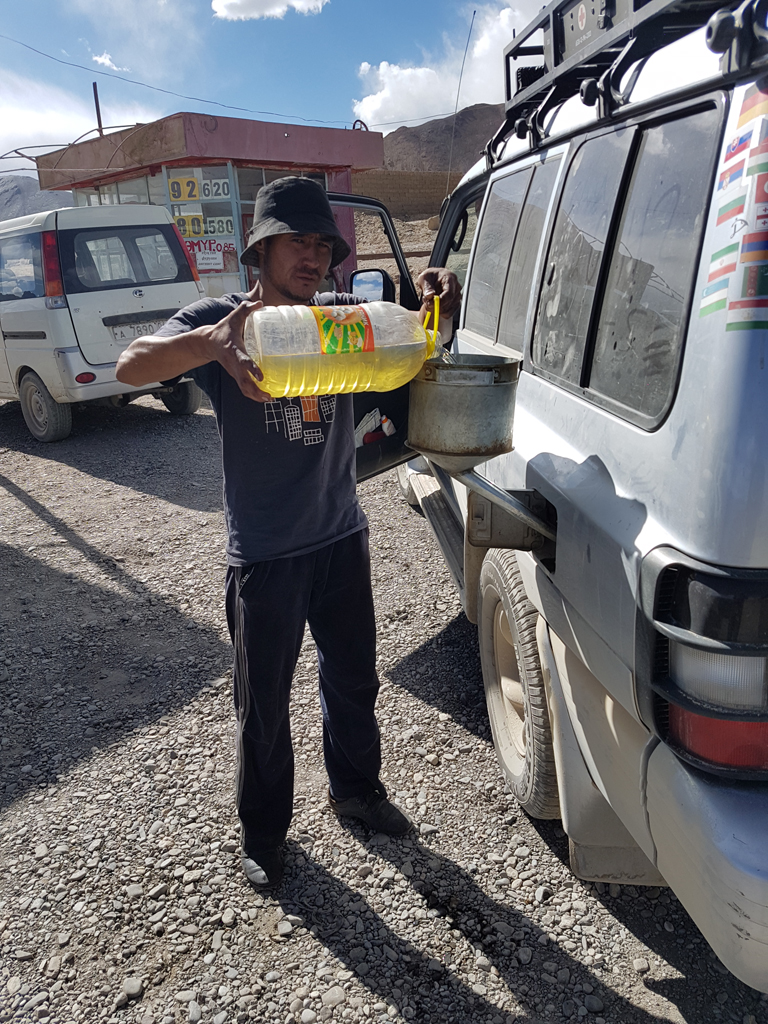
Unterwegs kam es dann zur ersten Autopanne (Nach 13.000km). Der Stoßdämpfer ist aus der Radhalterung gebrochen und wir mussten im Sandsturm mit dem Wagenheber hantieren um bei der Weiterfahrt keinen größeren Schaden anzurichten.
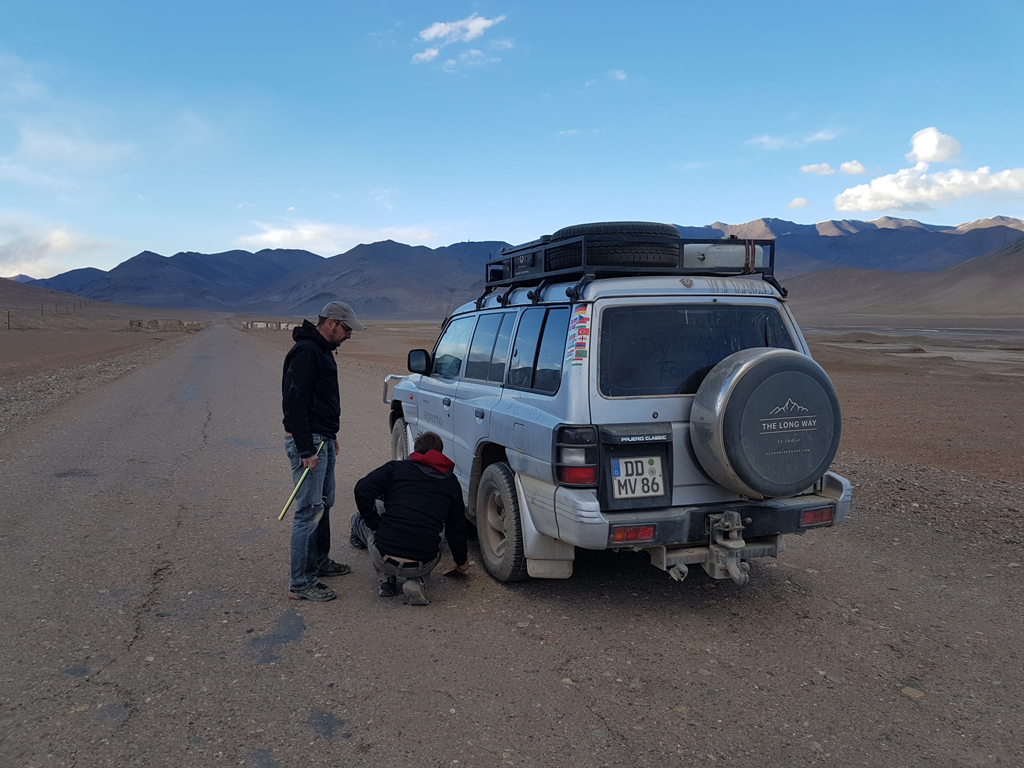
Die Straße wurde allerdings immer schlechter und ging bis zu einem Pass von 4652 Meter hinauf. Der höchste Punkt der Reise.
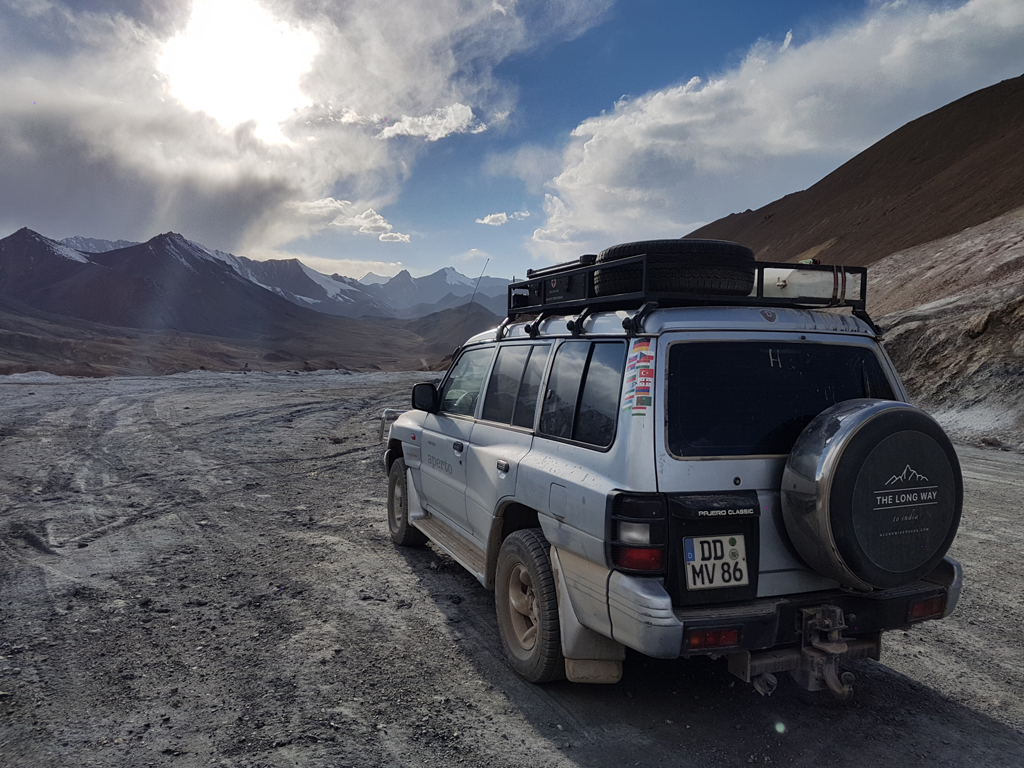
Am Karakulsee, was soviel wie „Schwarzer See“ bedeutet, schlugen wir auf knapp 4.000m das letzte Nachtlager auf. Hier fanden wir auch gleich zwei Mechaniker, welche den Schaden auf positiv russischer Art beheben konnten.
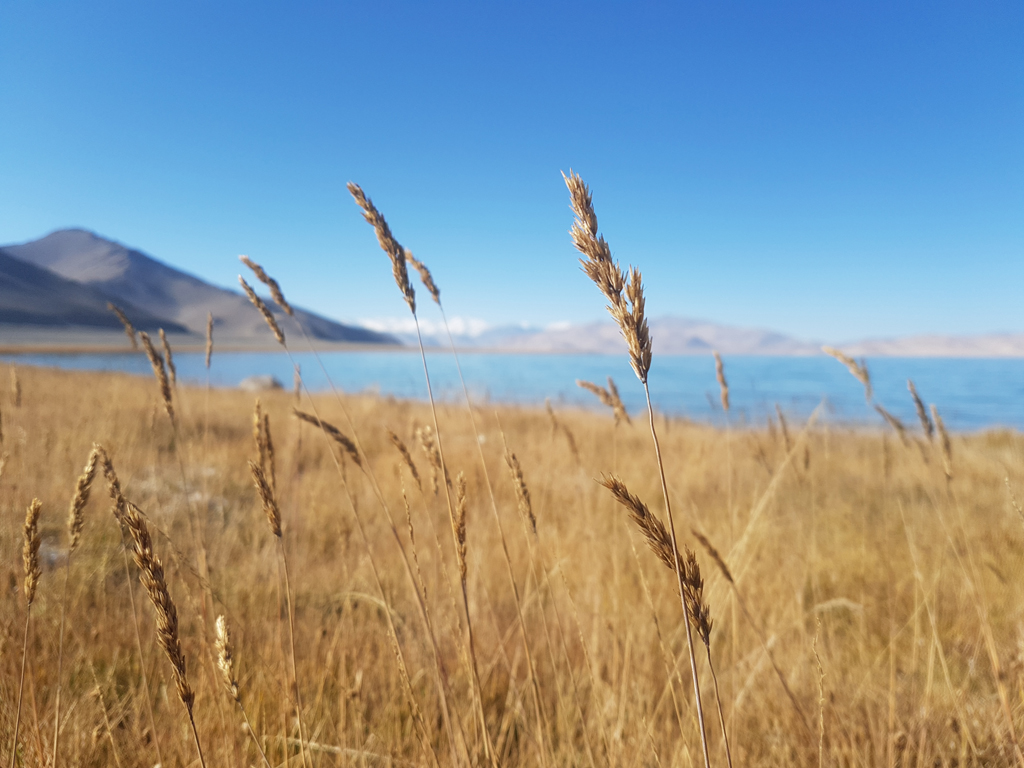
Die letzten Stunden im Land der Berge führten entlang des malerischen Karakulsees in Richtung Grenze.

Die schneebedeckten Berge spiegelten sich im Wasser. Eine traumhafte Kulisse. Die Chinesische Grenze war nun nur noch einen Steinwurf entfernt. Die Berge erstrahlten in Rot, Grün, und Grau. An einen kümmerlichen Grenzübergang auf einen Pass von 4200 Meter endete unsere Reise durch den Pamir. Die Grenzer waren sichtlich gezeichnet vom Saufgelage von letzter Nacht. Ein Versuch uns Bestechungsgeld wegen eines fehlenden Dokuments abzuverlangen wurde durch den Vodka-Kater schnell beendet. Genervt öffneten die Soldaten den Schlagbaum. Vor uns lag Kirgistan. Land Nummer 13 auf dem Weg nach Indien. Von hier sahen wir den Pamir von der anderen Seite und fast hätte uns das Gebirge auf einer Wanderung verschlungen. Nur knapp entkamen wir der prekären Situation, auf die ich im nächsten Beitrag eingehen möchte.
Die Reiseroute
TADJIKISTAN – COUNTRY OF THE MOUNTAINS
The beginning of the friendship with Tajikistan wasn’t the best. All my three fellow travelers were weak because of the diarrhea they brought from Usbekistan. We couldn’t find anything interesting in the capital Dushanbe so we escaped already at the second day into the mountains. Escaping describes it well because we escaped from the traffic police who tried to stop us because of our dirty car. Because you’re only allowed to enter Dushanbe with a clean car otherwise you risk a fine. But we got a fine only two hours later for speeding. I was driving out of town through a valley when a traffic police office jumped out of nowhere so I had to stop. He showed me on his laser pistol a “83” and explained that only 60 is allowed. I answered “Nje panemaju” (I don’t understand) and tried it all the time that he might lose his patience and let me go. But instead he called an English speaking guy who translated to me that now my driver license goes to Dushanbe and I have to pick it up from the police station and pay the fine there. It was obviously that he wanted money. After paying 56€ we were free again.
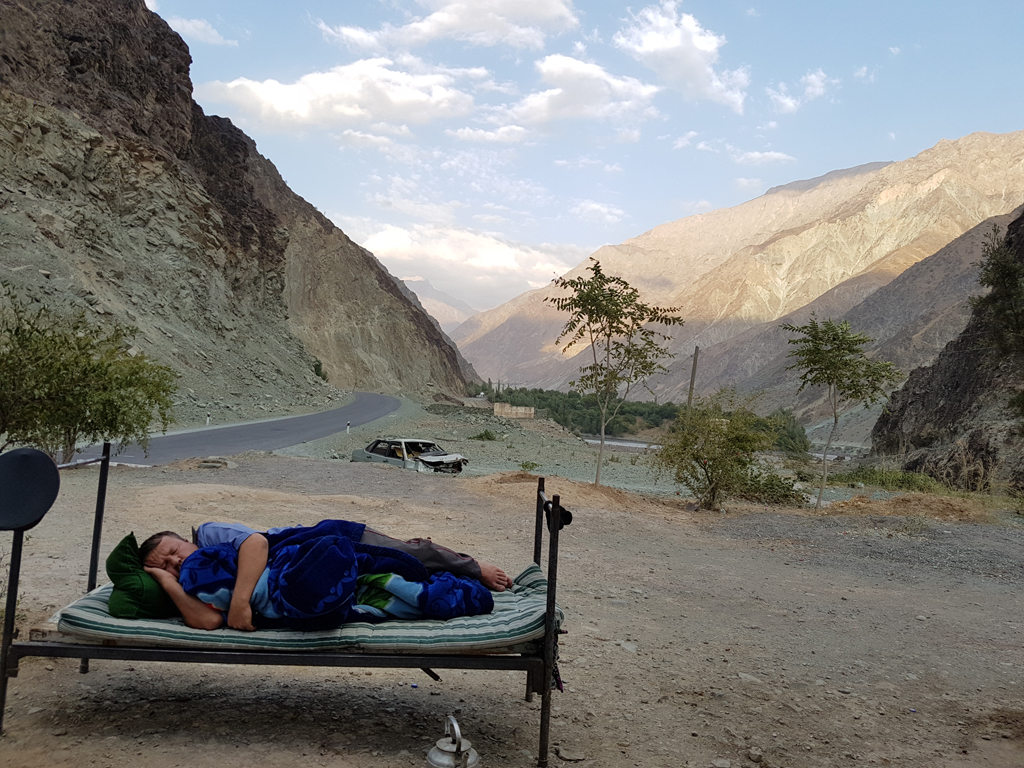
Later that day we passed the first of the many checkpoints of the autonomous region Gorno-Badakhshan for which we needed a special permit in our passport. Then we drove through a beautiful valley where on our right side we could see the Panj, the border river to Afghanistan. Afghanistan should be for the next 600 kilometer on our right side.
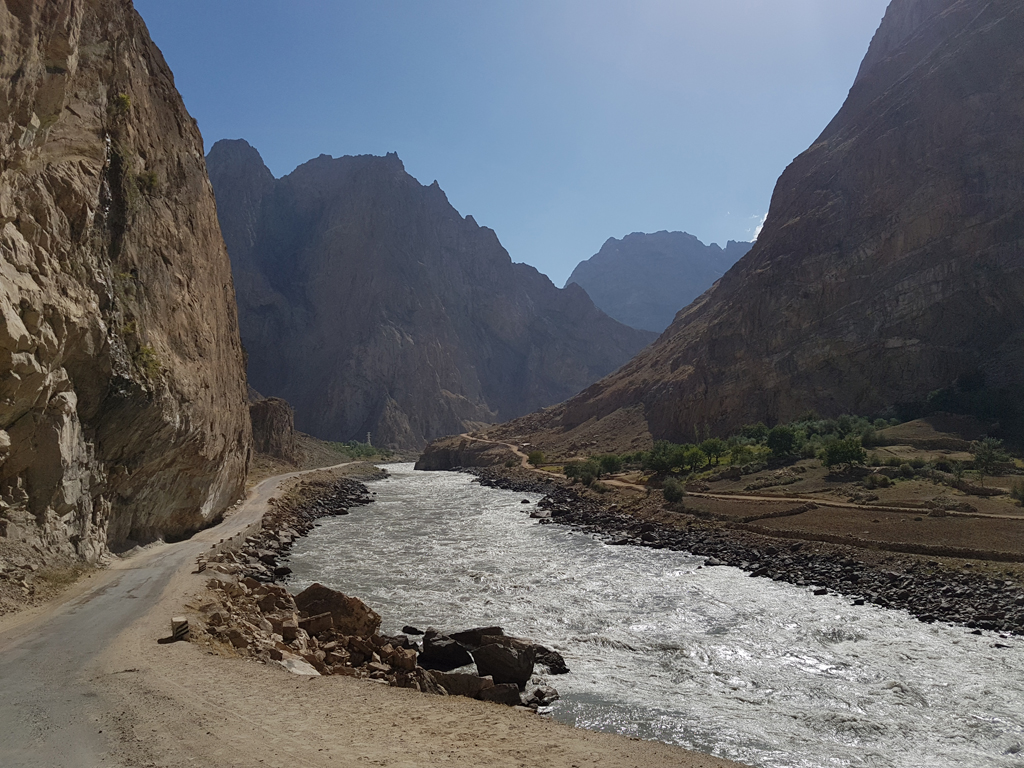
We looked for a long time from our car windows to the other river side. Hmm this is Afghanistan. The people from both side of the river had been united for a long time. The region called Badakhshan and covered parts of the Tajik Pamir, north parts of the Afghan Hindukush and even the Hunza region of Pakistan. But the region got split within the “great game”. India and Russia fought more than 130 years from 1817 to 1947 for the domination in Central Asia. At the end they split Badakhshan. They build between Great India (including the today’s Pakistan) and the Soviet Union (including the today’s Tajikistan) a only a few kilometers wide buffer zone and gave it to Afghanistan. This buffer zone called Wakhan-corridor and was supposed to be on our route soon.
We spent the night in a home-stay next to the street. There was Afghanistan only 200m from our beds. We ate cross legged on a carpet plateau under fruit trees, used a simple pot for showering and used the bio toilet. It was like back to the roots. And for sure in areas like this you can find a place with internet. So we enjoyed the simplicity of life…
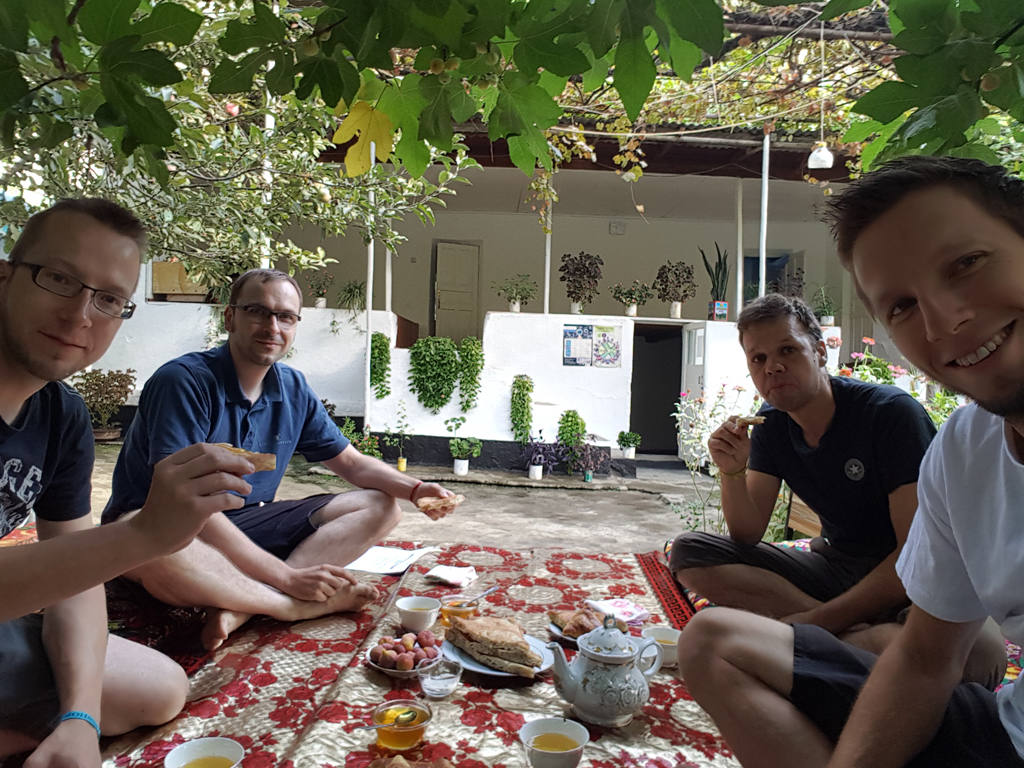
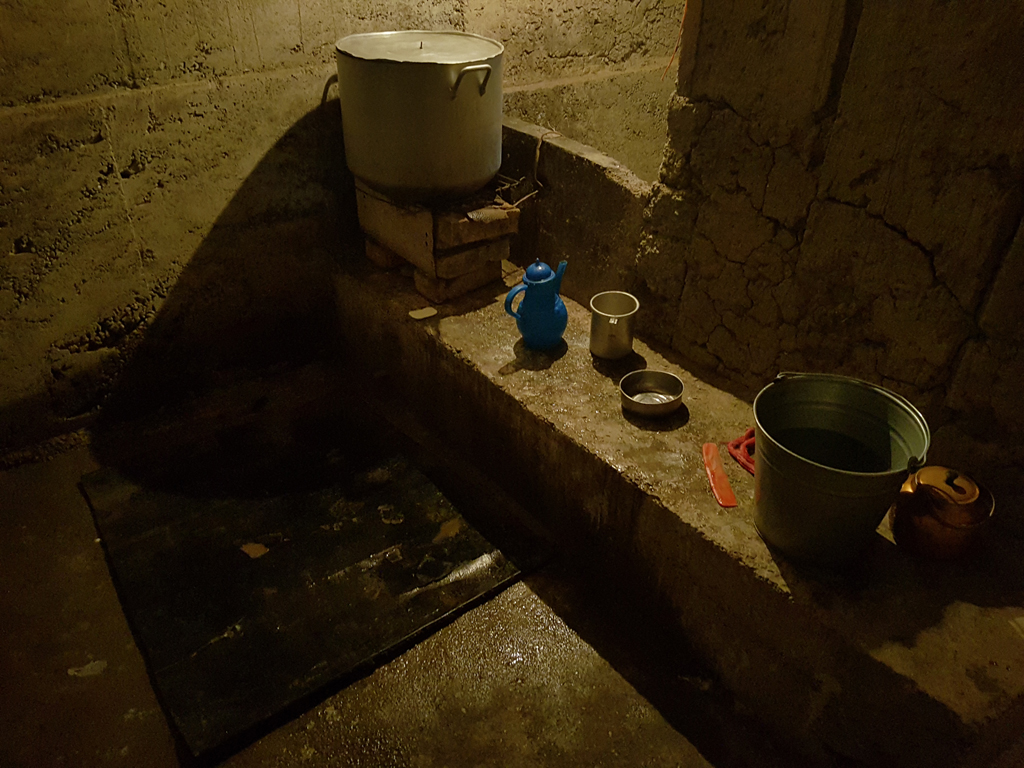
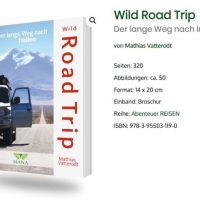
Great stories thanks for sharing. Greetings from México.